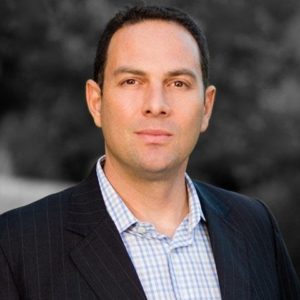When Patient Reviews Sting Part One | SurgiSnacks Episode 3
Listen On :
It happens to the best of the best: For 99 satisfied patients, there’s inevitably one frustrated customer despite your practice’s best efforts. In this special two-part episode of SurgiSnacks, we are excited to be joined by Evan Steele, Founder and CEO of rater8, to discuss how patients wield the power of the review. We talk about some of the most common causes of patient dissatisfaction, how to continue the never-ending journey of improving the patient experience, and how to harness the power of the voices of happy patients who visit your practice.
Related content:
- How to Make Patients Love Your Practice
- What Do Patients Look For In A Surgeon?
- How To Leverage Your Surgical Practice Marketing
- Losing the Paper Weight: Can Software Improve the Patient Experience?
- Top 5 Savvy Tips to Help Cut Surgical Wait Times
- The Complete Guide to Surgery Cancellation Fees for Practices
Join us for SurgiSnacks, the podcast that delivers bite-sized insights into the world of surgical coordination. Hosted by Al & Justin of Surgimate, the surgical coordination software company, each episode features practical tips and best practices for streamlining your surgical practice, enhancing your profitability, and improving the patient experience. Subscribe on YouTube, Spotify, or Apple Podcasts.
Well, hello and welcome back
to another episode of Surgisnacks.
My name is Al Norweb.
I am the Chief Growth Officer of Surgimate, and
if you like to geek out about the business of
surgical practices, you’ve come to the right place:
SurgiSnacks.
Our idea is to provide bite-size content,
hopefully about ten-minute long sessions with something
interesting that hopefully helps you with your day
to day running of your surgical practice.
My fearless co-host Justin Rockman isn’t with us
today, but I’m very excited to be here with
Evan Steele, the founder and CEO of rater8.
Welcome to the show, Evan. All right.
Thanks, Al.
When I look at your name on
the bottom left, it looks like AI.
I get that a lot, and I’m hoping that
it’s a career accelerator for me because it seems
to be a pretty hot topic these days.
Well, it’s really great to have you on the show.
I know you have an incredible
wealth of experience in this space.
For those of you, those in our audience
that don’t know you, could you give us,
like, a real condensed bio about Evan?
Yeah, I have finance
and accounting training by background.
I was in banking for a while, and then I left.
I actually became a practice administrator for a busy
ophthalmology practice in New York City for nine years.
Wow.
And while at that practice, I founded and ran an EHR
company called SRS Health, which I sold in 2012.
And in 2015, I founded rater8.
And 2018, we started selling the
product to the medical industry.
And fast forward five years, and we now have
just about 10,000 practitioners on our platform.
And what we do is we build
online reviews, and we also provide practice
improvement software through patient satisfaction surveys for
medical practices and hospitals.
Well, I’m sure many practices are happy.
You got out of the nasty business
of finance and got into healthcare. Yes. That’s amazing.
That’s an incredible story.
And in my experience in the space
have come up across your company, both
of your companies, in many, many ways.
I know you’ve made a lot of happy customers.
That’s fantastic.
All right, so on SurgiSnacks, we always have a topic,
and our topic for today is “When Patient Reviews Sting”.
It happens to the best of the best of us.
As practices, you could have 99 really happy patients, but
every once in a while you get one that has
a bad experience, and when they put one of those
nasty reviews on your website, it definitely stings.
And so to complement our topic, we always have a snack.
So we thought the appropriate snack for today is
Starburst, because we’re looking for five-star reviews.
So I’m going to start off here actually
reading a nasty review from a customer.
We’ve anonymized this, so it’s not actual real patient
data or anything, but we thought it’d be kind
of fun and painful to show what kinds of
things a practice might see from a patient.
So here’s a short one, Evan.
I don’t need that.
This is a reputation and brand business, right?
So these hurt.
Tell me more about, you spoke about it a little bit,
but what rater8 specializes in?
Well, when I started the company, the very first
thing we did, the very first thing, even before the
reputation management, and even before asking different questions about
practice operations like staff friendliness, office cleanliness, and even the
parking, the check-in experience, the first thing we
did was just rate people.
So we had these little circles and the survey
would have the doctor and the front desk staff
and checkout person’s face in a circle.
It was just about rating people.
And the whole idea is that if I could
have a dashboard where that amplified the voice of
the patients and was able to just see right
away, just one click on all the one-star
unhappy comments and just quickly read what’s going on.
So I would know, for example, if some far-flung satellite
office that I have, if I had Mary or Joe checking
in the patient and Mary or Joe is on their cell
phone or eating a burrito upon check-in and a patient
complains about that, I want to know about that as a
practice administrator and I want to rectify those problems.
A lot of one-star reviews,
they’re all caused by people, right?
Very rarely, sometimes someone will complain about the bathroom
was dirty or the office was a mess, but
usually when we search through our database you
search for the word rude, it comes up time
and time and time again.
A lot of times it’s the doctor,
but even more often it’s the staff.
So the idea is just to understand the patient experience
and be able to parse out the complaints, listen to
them and act on it and actually try to improve.
And if that means identifying employees that you need
to put on a performance improvement plan, or identifying
employees doing a really good job, and you want
to give kudos and engage that employee and reward
positive behaviors so that you could up the bar
in your practice, that’s what it’s all about.
So it’s using software to improve
the patient experience through people.
Yeah, that makes a lot of sense.
At Surgimate, you’re working with all
types of clinics and specialties.
We primarily focus on surgical practices, which
is a subset of probably your customers.
But the surgery experience itself is obviously
fundamental to those types of practices.
If you’re not getting good results in surgery, you’re
probably going to have problems in that realm. Right.
And surgery is a very high-stress time for a patient.
You’re never under more stress.
And I have to book surgery, and I have
to go into the operating room and all that
uncertainty and worry, and patients get fraught with anxiety.
So what do you do in Surgimate to help
your clinical and administrative staff better perform their jobs and
better communicate with patients and make sure you don’t get
these one-star, unhappy, nasty reviews online?
Yeah, I mean, you’re exactly right about the
anxiety, which is not a surprise, right?
But when you think about a good review, a
lot of it, the emphasis would be on the
clinical experience and the outcomes of the surgery, which
is obviously fundamentally the most important piece.
But it’s everything around that surgery is really
important as well for the patient experience.
And I’d say the number one thing that we find
as a source of frustration is breakdowns in communication.
So to your point, if I’m a nervous patient,
I’m anxious and I’m not getting clear information
or conflicting information or updates or something changes and
I’m not made aware of it, that’s not going
to lead to a good result for that patient.
So one of the things that we do try
to emphasize is standardizing processes for patient outreach.
That’s one way. A lot of practices don’t do that.
And so you have different schedulers, observing
different ways to reach out or coordinators,
and you end up with uneven results.
And another important way, I’d say is when you have
four or five or six different people that are reaching
out to a patient before a surgery, it’s very easy
for them to be providing conflicting information. Right?
And part of that is because everybody lives in
their own silo of information, the hospital or the ASC
or different parts of even within the same clinic.
And so getting people in one uniform place to see
everything around a case and know the right information is
a really good way to help reduce it.
That’s, I think, one of the things we really
try to emphasize on, and that tees up here.
Evan, I got another nasty review for us to read up.
Again, these are anonymized, but this is one I
think is exactly on the point of our discussion.
So here we go.
So it’s a good example
where communication breakdown really hurts.
But you guys see all
this data across different elements.
What else do you see as, like, the
common reasons for patient dissatisfaction out there?
Well, just to that point, I go into some
of the things that really upset patients the most.
My wife had a surgery.
She was younger, she had fallen off a horse and
broke her hip, so she needed a hip replacement.
So we did it at the hospital for
special surgery in New York City.
And I remember that it was like at 9:00 at night,
and some nurse with a clipboard comes around doing a survey,
and we just got kind of into a conversation with her
about why would a patient give a bad review?
You’re such a great institution.
And she says, almost 100% of the time, whenever
there’s an unhappy patient, it’s a process problem.
It’s not the people, it’s just the process broke down.
And that woman who complained that her appointment was
canceled and she drove 50 miles and 50 minutes
and wasn’t even told, that’s just pure process, right?
There wasn’t a process, a workflow in that
practice for as soon as something’s canceled like
this and this and this has to happen.
We have to call these patients in this manner,
in this number of minutes, and give them this
much heads up that there’s no appointment.
That was probably a process problem.
And we see a lot of that.
The biggest complaints by far.
We look at all the scores of our one through five-star ratings, waiting room time by far, not even close.
By like three-tenths of a point.
Waiting room time is the biggest
complaint throughout our whole client base.
And we’re talking about
650 clients, 10,000 practitioners.
We actually interviewed our client who
has the best waiting room score.
It was an orthopedic group in Oklahoma,
and they’ve increased their satisfaction score.
We saw a positive trend, so we reached
out to them, like, what’d you do?
We actually have a blog about it.
If you go to the rater8 website, go to
the blog section, and search for waiting room time.
When we interviewed the client and they did a lot
of work on sometimes I’ll give you an example.
If you’re waiting for a flight and there’s a two-hour
delay or an hour and a half delay, would you rather
wait an hour and a half and hear nothing?
You’re just stewing.
You’re in that waiting room.
You’re not hearing any communications.
That’s for an hour and a half.
Would you rather wait an hour and 45 minutes?
Actually, 15 minutes more, but every
15 minutes, you’re getting an update.
The pilot, the plane, the part you would
rather wait longer if you were kept informed.
So they have this board and this board system they use,
and they write each doctor and how long the wait is.
So it’s full communication.
So even though the patient’s waiting probably
the same amount that other practices, the
perception of waiting is a lot less.
And they offer patients the option to wait in
the cars so they could be in the cars.
They’re not in a crowded waiting room.
They put on the radio.
They could talk on their cell phone
privately, and then they’ll just text them
or call them when they’re ready.
So things like that could be rectified.
And again, that’s the process, right?
They didn’t fix the waiting room time problem.
They’re communicating better with patients, so
they have the highest scores, and
they probably have long waits.
Also, doctor’s bedside manner, I mean,
we just hear tons of that.
So what we like to do is have these
patient feedback summaries, so every month, the doctor gets all
the comments the patients made sorted by worst to best.
So the one, two, three-star comments show up first.
And the hope is that they
don’t get buried in myriad comments.
And the doctors read like the hearing,
like, hey, every month, they’re seeing what
their patients are complaining about.
And do all doctors change?
No, they’re hard to change.
But you know that by just reading the
comments from the patients and listening to them,
we’re hoping that we’re affecting some change. Yeah.
In my experience, working with practices, when you
can show them data that’s dispassionate just simply
like, hey, here’s the facts, they tend to
be very responsive because they’re such a logical population
in general, and that’s a really powerful way
to help create some consistent change over time.
Evan, I believe we are up against our time for
session one of our discussion today, but I’m excited that
we’re going to be continuing our discussion in a second session.
So tune in for our next session of SurgiSnacks, which will be coming to you soon.
I really want to thank you for joining us here today,
and I look forward to speaking with you again soon.
Same here, Al. Thanks.
Related Episodes
Episode 4: When Patient Reviews Sting - Part II
Episode 5: Finding the Sweet Spot
MEET THE HOSTS

Justin Rockman
VP of Business Development
The industry expert on surgical scheduling workflow optimization, Justin consults for surgical practices and lectures nationwide. Justin joined Surgimate after 8 years as a founding member of an IBM-acquired startup. A devoted husband and father of four, ultra-marathoner and lover of the outdoors, Justin studied law at Monash University and earned his MBA from Bar Ilan University.

Al Norweb
Chief Growth Officer
Al Norweb is focused on everything and anything that brings the power of Surgimate to more surgical practices. Al mostly recently served as the General Manager of Orthopedics for a leading EHR and practice management software company where he oversaw a near quadrupling of their book of business. Based in Miami, FL, Al holds an MBA from Harvard Business School, an MPA from Harvard Kennedy School, and a BS in Economics from Duke University.
be our guest?
Would you like to be part of our next podcast episode? If so please contact us for more details.










Evan Steele is an entrepreneur passionate about customer service, productivity, efficiency, and ergonomic software design.
Evan Steele Founder and Chief Executive Officer at rater8